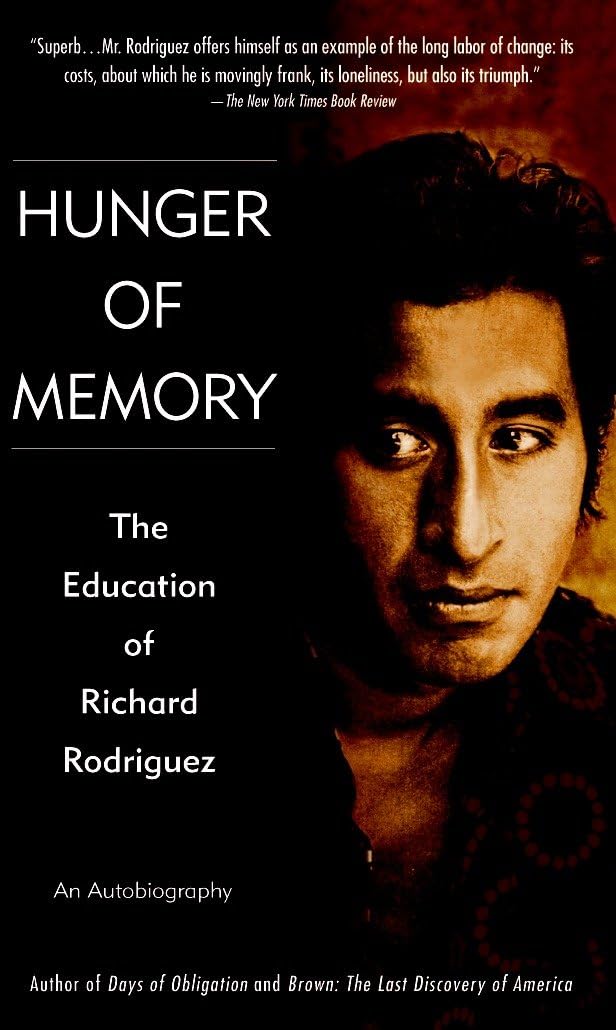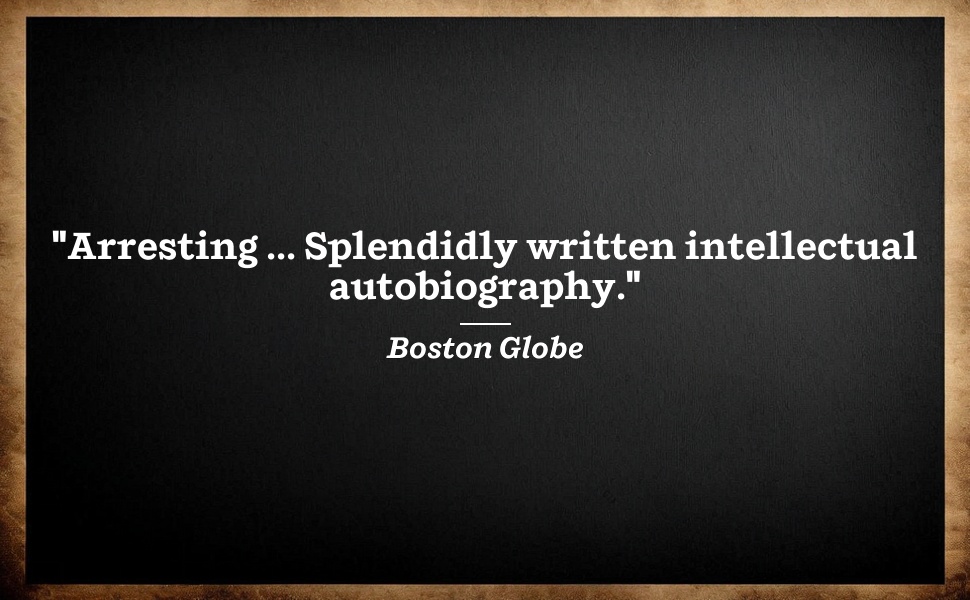Customer Services
Copyright © 2025 Desertcart Holdings Limited


Hunger of Memory : The Education of Richard Rodriguez [Rodriguez, Richard] on desertcart.com. *FREE* shipping on qualifying offers. Hunger of Memory : The Education of Richard Rodriguez Review: compelling narrative on the American identity - I’ve used this book as the centerpiece for my Composition 1 course , Richard Rodriguez tells a compelling story about his assimilation into American society. His predictions came true and his book speaks volumes about what the American identity is, and the struggles one faces as an immigrant. Review: a great read! - I read this book to complete an assignment for a "Teaching Diverse Learners" class. I enjoyed it personally and appreciate Mr. Rodriguez eloquent sharing as a future educator. He articulates well his own experience. Because of the ways I related to his experience, I can believe that many other minority and white students could experience similar emotions and struggles. This book was perhaps the most helpful assignment in this class!

| Best Sellers Rank | #89,443 in Books ( See Top 100 in Books ) #19 in Hispanic American Demographic Studies #31 in Hispanic & Latin Biographies #1,863 in Memoirs (Books) |
| Customer Reviews | 4.2 4.2 out of 5 stars (645) |
| Dimensions | 4.16 x 0.59 x 6.88 inches |
| Edition | Reprint |
| ISBN-10 | 0553272934 |
| ISBN-13 | 978-0553272932 |
| Item Weight | 3.6 ounces |
| Language | English |
| Print length | 212 pages |
| Publication date | February 1, 1983 |
| Publisher | Bantam |
M**I
compelling narrative on the American identity
I’ve used this book as the centerpiece for my Composition 1 course , Richard Rodriguez tells a compelling story about his assimilation into American society. His predictions came true and his book speaks volumes about what the American identity is, and the struggles one faces as an immigrant.
T**O
a great read!
I read this book to complete an assignment for a "Teaching Diverse Learners" class. I enjoyed it personally and appreciate Mr. Rodriguez eloquent sharing as a future educator. He articulates well his own experience. Because of the ways I related to his experience, I can believe that many other minority and white students could experience similar emotions and struggles. This book was perhaps the most helpful assignment in this class!
K**R
Very interesting
This book should be read by every student who is the first person in their family to go to college. Particularly if they grew up speaking a language other than English. These students lose their native culture by choice to become "American" and often their children want to regain the family's culture that their parents have lost. I taught English as a second language and saw many families fall apart as the children went on to college and almost felt ashamed of their hard working but uneducated parents. Sad! This is one boy's experience of how this happened to him. It is well written and illuminating.
A**R
great read
This book explains the struggle of straddling two opposites. I can relate in some ways and as you read you can visually see the author going back and forth about who he is.
P**S
In order to get to where you are, sometimes you have to leave something behind
They say that English is one of the hardest languages to learn. However, it is much harder to navigate the language of culture, which Richard Rodriguez mastered well. Rodriguez's story plays out the same as way many second-generation Americans; he begins his educational career in parochial school, where he only knows 50 words of English. He is forced by Nuns to assimilate to American culture and learn the language, in doing so he leave some of his own Hispanic upbringing behind. His parents feel the pressure by Nuns as well, who insist that the Rodriguez's speak English at home. Rodriguez succeeds in school, goes to Stanford University, and begins a teaching career. He doesn't make himself visible in the Chicano studies program nor is he a supporter of Affirmative Action, which he feels designates persons of color as needing preferential treatment because they can't compete because of their race. Throughout his life he struggles to master remaining true to his roots, but understanding how his education leaves him out of touch from other Hispanics who never had the breaks Rodriguez had. As a first-generation college graduate I can relate to the struggles Rodriquez experienced, walking the line of relevancy of where you came from to realizing how distant you are from it. This book was an okay read, but left me wanting more.
F**3
Mandatoy book for all Mexican-Americans
My older brother, a recent graduate from George Washington Law School, recommended me this book. Richard's autobiography had me captivated from the first word to the last. I don't know if it was the similarities between my own life with his, or because he spoke the very truth of affirmative action. Either way, this is a must read for all Mexican-Americans who want something to relate to, or for someone who wants to garner more knowledge of a middle-class Chicano living in this great country!
A**R
A book about internalized racism
Just as Mr. Rodriguez, I went to a Christian private school where I was the only Latina. I am a second generation Mexican-American who disagrees with Mr. Rodriguez opinions and feelings. He can’t seem to relate to anyone who is Mexican, even his own siblings who went through a similar education and upbringing. He explains several times that he is ashamed of his parents for having little education. He eventually stopped speaking Spanish and distanced himself from his family. He’s ashamed of his skin tone and his roots. The message I got from this book is that Education=Anglo Saxon and uneducated=minority. This book is sending a toxic message about internalized racism. He’s a self hating Latino but still so far up his ass about his new socio economic status and higher education.
W**L
Wonderful story of growing in a different culture.
It paralles my own experience except I wasn’t as successful as the author.
F**A
alte Edition aber in guter Verfassung
A**R
I bought it for a friend's birthday present. I haven't read this but I admire the writer.
H**E
It offers a perspective on language accusation and language loss… if you read it you will say ok… if you don’t — you haven’t missed much.
Trustpilot
3 days ago
2 weeks ago